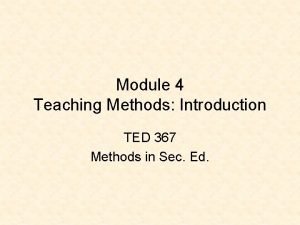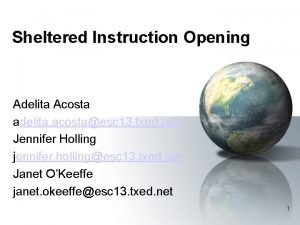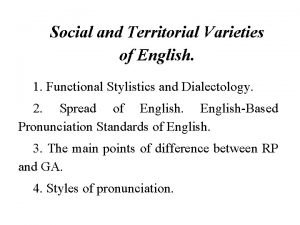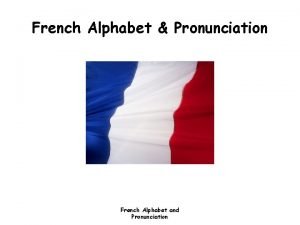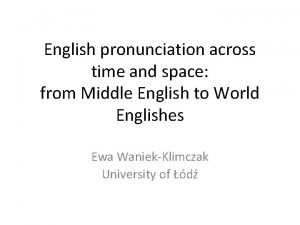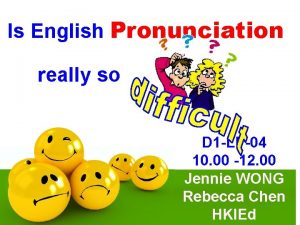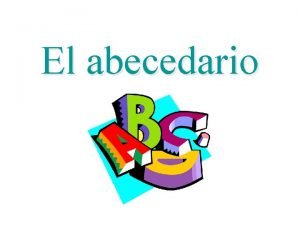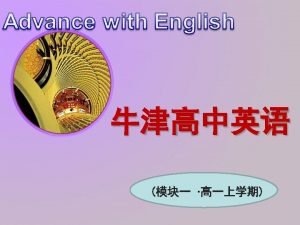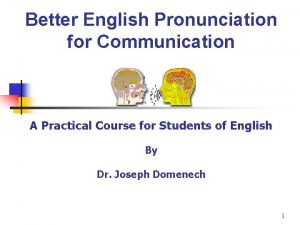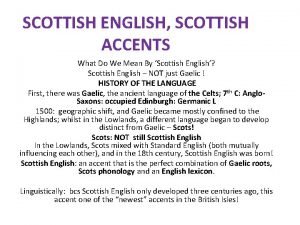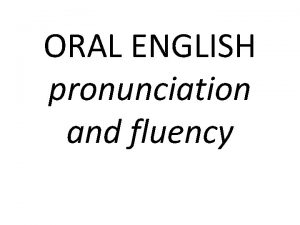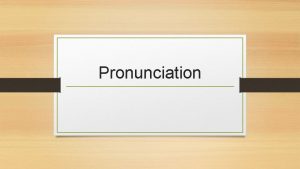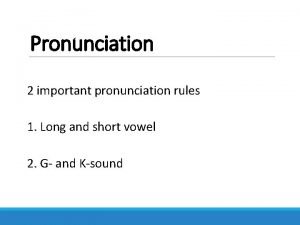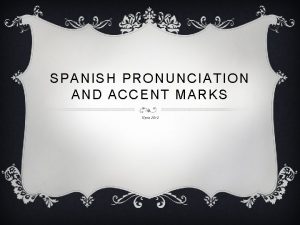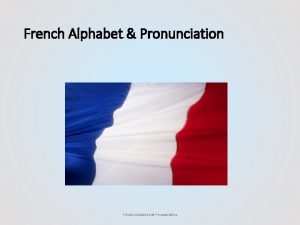Speech and Pronunciation Instruction To Improve English Language













- Slides: 13

Speech and Pronunciation Instruction To Improve English Language Learners’ Understandability A First Literacy Professional Development Workshop

Word Stress Compound Nouns Adjectives Before Nouns The main stress is usually on the first The main stress is usually on the second word. • I lost my credit card. • That’s a good card. Verb Phrases Usually stress the last word. ü I can go there now. ü He doesn’t study every day.

Content Words: “… the words that carry the most meaning. ” Mastering the American Accent by Lisa Mojsin (p. 85) They are usually: vnouns I want a bacon sandwich. Give me a ham and Swiss. vverbs I have to go. Please, don’t go now. vadjectives The soup was tasty. The concert was nice. vadverbs The class went well. Give it to me now.

Function Words: “… generally don’t carry as much importance or meaning as the content words. ” Mastering the American Accent by Lisa Mojsin (p. 88) When a verb is in the negative form, the stress changes. Ø I can do it. Ø He should try it. Ø I’d like it. I can’t do it. He shouldn’t try it. I wouldn’t like it. These words are reduced to schwa most of the time.

Function Words When we reduce function words, their full sound, i. e. as they are pronounced in isolation, changes to a schwa /ə/ as in up, cup, because and does. For becomes /fər/. • Hey! Wait for me! • This is for Bill, not for you. • I’m looking for my keys. Have you seen them? As becomes /əz/. • That’ not as much as you said. • As soon as I got home, I called him. • They went out to eat as always. To becomes /tə/. • I’d like to see you tonight. • We need to do this now. • He did it to please you.

Function Words And becomes /n/. • He painted the chairs black and white. • I like bacon and eggs for breakfast. • My father and I are going fishing. Can becomes /kən/. • I can go with you now. • You can call me any time. • They can get their passports tomorrow.

varticles The kids got a dog from the pound. Have you ever been in an accident? vpronouns Where was it? I got it for a good price. vindefinite pronouns Did you see anyone at the show? I don’t like that one. Give me the blue one. vprepositions The price of gas has gone up twice since last year. Please put it on the table near the door. vconjunctions I asked her why she was sad, but she didn’t tell me. The woman that was talking to Jane is her aunt. vauxiliary verbs I haven’t seen him since last Christmas When would he go there?

Contrastive Stress Word stress may change from the usual manner for different reasons: Introduction of new information A: I like your hat. B: I do too. It’s a new hat. Clarifying / Correcting Information • Did you say you want to eat inside or outside? • Give me one piece, not two. To Show Emphasis A: You didn’t do it, did you? B: I did do it, and it turned out OK.

Thought Groups: “… words that belong together as a grammatical unit. ” Mastering the American Accent by Lisa Mojsin (p. 91) Also, • Grouping words naturally helps listener understand. • There is a very short pause between one thought group and another. • One word in each thought group usually gets the most stress. • It conveys key information.

T t G h r o o u u g p h s In reading, punctuation facilitates thought group formation. Grammar is the oral guide. Identifying grammatical units helps place the pauses in a sentence. (e. g. a beautiful woman) • Noun phrases • Verbs and adverbs (spoke rapidly) • Verbs and objects (climbed tall trees) • Verb phrases (was going to call you) • Prepositional Phrases (after class, at the library) • Clauses (When I was a boy…) (The student who came in late) Some units are small and should be separated. • She saw him. • It’s her book. • Did you lose it?

Thought Groups “Scripture tells us / to run with endurance / the race / that is set / before us // …. . On Monday morning / the sun rose / over Boston. // The sunlight glistened / off the State House dome. // In the Common / and the Public Garden / spring was in bloom. // On this Patriots Day / like so many before / fans jumped / onto the T / to see the Sox / at Fenway. // In Hopkinton / runners / laced up their shoes / and set out / on a 26. 2 mile test / of dedication / and grit / and the human spirit / and across this city / hundreds of thousands Bostonians / lined the streets / to hand the runners / cups of water / and to cheer them on. // It was a beautiful day / to be in Boston. “// -Barack Obama Speech For the Victims of the Boston Bombing You Tube

Different T Sounds Held T cat late eight weeks it was Trtry traffic train trade • • • T Before N shorten kitten button curtain T After N interview twenty internet center T Between 2 Vowels city little party total The cat ate the food on the mat. The international conference took place in Atlanta and on the internet. I haven’t forgotten to buy the curtain. I’ll eat it a little later. What is the trouble with Tracy?

Sources: Mastering the American Accent Lisa Mojsin, M. A. Pronunciation Pairs Ann Baker & Sharon Goldstein
 Individualized instruction vs differentiated instruction
Individualized instruction vs differentiated instruction Direct instruction strategies
Direct instruction strategies Action plan to improve listening skills
Action plan to improve listening skills Direct speech pronunciation
Direct speech pronunciation A level english language language change
A level english language language change Sheltered english instruction
Sheltered english instruction Social varieties of english
Social varieties of english French letters pronunciation
French letters pronunciation Middle english pronunciation
Middle english pronunciation I take it you already know of tough and bough
I take it you already know of tough and bough Abecedario pronunciation
Abecedario pronunciation Wet blanket
Wet blanket A practical course in english pronunciation
A practical course in english pronunciation Scottish english characteristics
Scottish english characteristics

